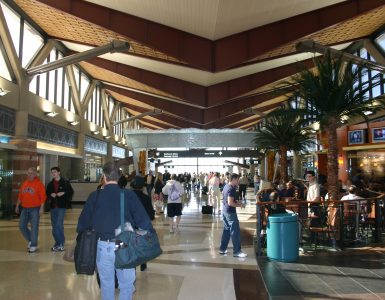Arizona’s hourly minimum wage on Jan. 1 increased $0.75, which puts it at $12.80 after accounting for the previous year’s cost-of-living increase.
The increase is in accordance with Proposition 206, which Arizona voters passed in 2016 and mandates the minimum rate that employers are allowed to pay in the state. Under the law, the minimum wage is adjusted on an annual basis in line with “the percentage increase as of August of the immediately preceding year over the level as of August of the previous year of the consumer price index…with the amount of the minimum wage increase rounded to the nearest multiple of five cents.”
Individual Arizona cities and towns have also passed minimum laws. Tucson is set to push its minimum wage up to $15 per hour on January 1, 2025, with the multiyear phase-in beginning at $13 per hour as of April. Flagstaff voters in 2016 approved a city-level wage law that ensures the city’s hourly minimum wage will always be higher than the state minimum wage. The Flagstaff minimum wage for 2022 is $15.50.
C.J. Boyd, organizer of the Tucson Fight for $15, said, “We’re glad that in 2016, the statewide minimum wage that passed included an adjustment for cost of living, inflation but we know it’s going up that much because the inflation this year has been pretty historic. We haven’t seen this level of inflation since 1982.”
Joe Galli, the senior adviser for public policy at the Greater Flagstaff Chamber of Commerce, says his organization’s members have felt the pinch from the city wage law.
“Flagstaff employers face the greatest labor cost disparity compared to their counterparts and competitors in the rest of the state,” Galli said. “The hardest hit are the industries with the smallest margins of profits, including restaurants, bars and tourism-related industries.
“Our members tell us that they respond to higher mandated wages by streamlining, whether it’s automating, cutting employee hours, or reducing the overall number of employees. They pay the higher wage, but they pay it to fewer people and they pay it for fewer hours.”
The nationwide labor crunch is driving wage growth in early 2022, with entry-level wages in metro Phoenix and Tucson often exceeding the government-set wage floors. The government wage mandate could still prove troublesome for employers who are struggling, however, since the law puts upward pressure on labor costs without accounting for a business’ profitability or other economic conditions, nor does it account for an employee’s tenure or experience level.
According to the Bureau of Labor Statistics, the average hourly wage for all occupations in the Phoenix Metro area is $26.38.
Garrick Taylor, a spokesperson for the Arizona Chamber of Commerce & Industry, which opposed Proposition 206, told Fox 10 that wage mandates could affect employers in metro areas differently than those in rural areas.
“Rural Arizona might be a different story because workers are harder to come by, and your margins are tighter there” Taylor said. “So we’re really looking at some tough decisions in rural Arizona.”
Twenty five states and the District of Columbia will see minimum wage increases in 2022.
















Add comment